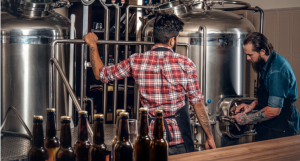How is Carbon Dioxide used in the Drinks Industry
Carbon dioxide has become an essential substance in drink production today, particularly in drink carbonation. CO2 is commonly used in beer, soda, and wine. When carbon dioxide is mixed with water, it produces carbonic acid, this carbon acid is what impacts the flavour of drinks and provides the sensory ‘fizz’ in your mouth. There are various reasons why carbon dioxide is the go-to choice of gas to be used for drink carbonation. Firstly, its solubility; when making drinks, the gas must be mixed with water, CO2 is extremely soluble in water, unlike most other conventional gases that don’t mix well, or those that do, are toxic. Secondly carbon dioxide is extremely stable when mixed with water. When mixed with water, CO2 produces the desired carbonic acid, dissimilar to other gases that would produce inappropriate by-products. CO2 is also the first choice due to its reasonable cost, other gases could be used as an alternative, however CO2 is most commonly available and cheapest to source. Finally, CO2 has proved to be extremely effective at preserving beverages for a very long time.1
Is Beer Carbonated with CO2 and Why is Carbonation Important in Beer?
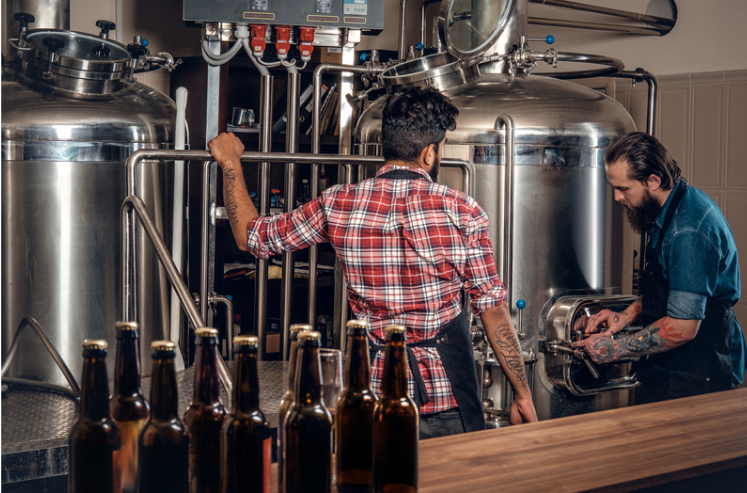
Carbon dioxide is especially important in beer carbonation. CO2 is released during the fermentation process and has a large impact on the flavour of the beer as well as the shelf-life.1 CO2 in beer is essential to its quality, sensory effects, the beer foam head, and shelf-life.2 Following beer carbonation, to ensure the quality of carbonated beer is not hindered when bottled, prior to be filled, CO2 gas is added into bottles, minimising the exposure of oxygen.3
How do pubs carbonate beer?
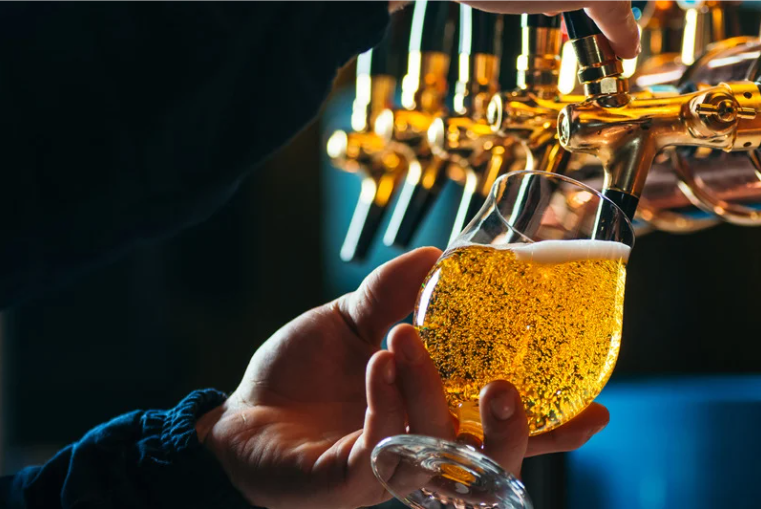
For pubs to provide the perfect pint of beer, carbonated beer is stored in a keg. The beer then travels from the keg, up to the tap through pressurised CO2 systems. This ensures the quality of beer coming out of the tap is the best possible.
Brewery Safety: Do Breweries Produce CO2?
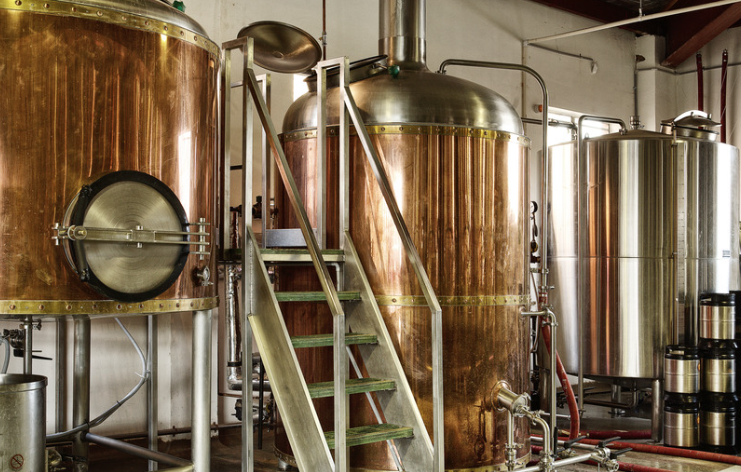
When producing drinks that contain CO2, there are certain circumstances that could be hazardous to employees; thorough risk reviews and monitoring are therefore vital for the safety of workers.1 This risk is increased in breweries due to the containers, and enclosed factory rooms. CO2 measurement is crucial to brewery safety and overall, in drink production plants. To ensure a safe working environment, it is important that CO2 levels are monitored frequently, CO2 measurement is best achieved using gas sensors.
CO2 measurement should also occur in pubs and restaurants who often hold cylinders of CO2 in their cellar. This is used for the beer tap. However, this then places them at a higher risk of CO2 poisoning and thus must be monitored closely. CO2 exposure can be very dangerous with symptoms including, headaches, disorientation, faintness, and loss of conscious.4
How is CO2 Used in Soda?
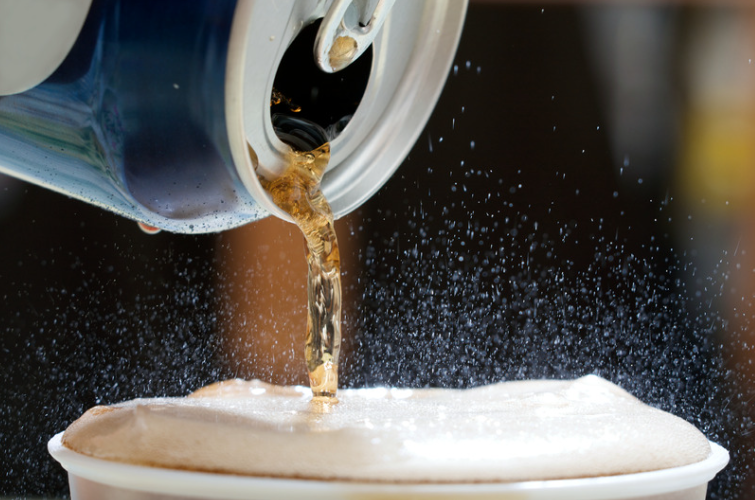
Drink carbonation does not only occur for beers. Do you enjoy the feeling of the fizz of bubbles bursting in your mouth when you drink a soda? These bubbles occur due to carbonation that infuses CO2 in Soda. Like with beer, CO2 is added to water and infused at high pressure until the liquid is packed with gas.5 The drinks packaging such as cans or bottles are also filled with carbon dioxide to alter the pressure and ensure a suitable environment to contain the CO2 in the soda. Packaging is then sealed airtight to ensure the CO2 does not escape.5 Upon opening the airtight packaging the CO2 in soda is released, forming bubbles. Eventually, after some time, enough CO2 will come out, turning the drink flat.
CO2 in Wine

CO2 in wine enhances the overall freshness, acidity, sweetness, and shelf-life. Contingent upon the wine CO2 will have different effects, too little CO2 can make white wine flat, but too much can reduce the tones in red wine.6 Managing the CO2 levels within wine is therefore vital in achieving the desired flavour.
To find out more about CO2 in wine, read out previous articles:
Gas Sensors for Drink Carbonation and Brewery Safety
Edinburgh Instruments offer CO2 measurement solutions, allowing you to guarantee brewery safety and monitor drink carbonation. Edinburgh Sensors offer various CO2 monitoring instruments: Guardian NG, GasCheck, Boxed GasCard, and IRgaskiT. Simply follow the links to find out more about each monitor.
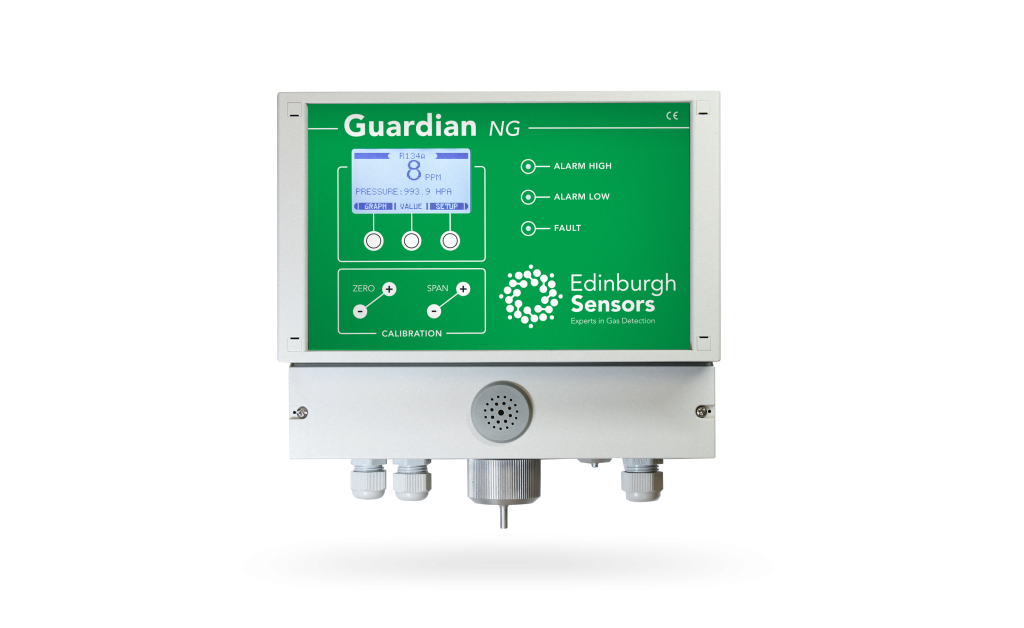
Keep in Touch
If you have any further questions regarding CO2 monitoring or are interested in one of our products, please get in touch, and we will be delighted to help. Additionally, if you would like to keep up with our latest news and events, sign-up to our infrequent newsletter, or follow us on social media: LinkedIn, Facebook, Twitter.
References
- https://www.draeger.com/Library/Content/carbon-dioxide-food-and-beverage.pdf
- https://www.brewersassociation.org/brewing-industry-updates/understanding-and-ensuring-co2-supply-quality-for-brewery-use/
- https://zephyrsolutions.com/why-and-how-we-brew-with-co2/
- https://www.indsci.com/en/blog/the-importance-of-co2-monitoring-in-the-food-and-beverage-industry
- https://letstalkscience.ca/educational-resources/stem-in-context/chemistry-pop
- https://www.vineyardmagazine.co.uk/wine-making/co2-in-wine/

